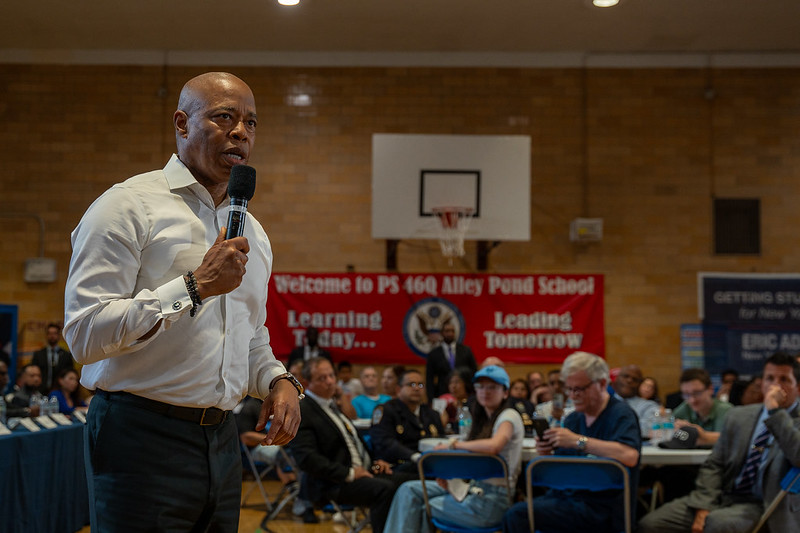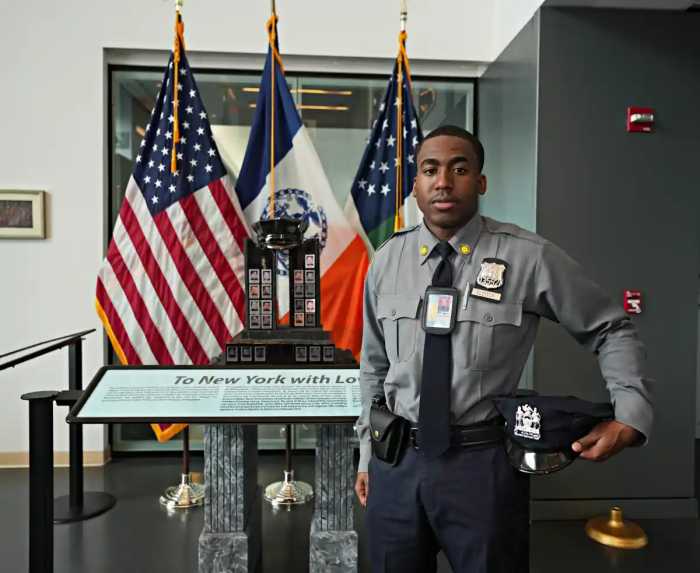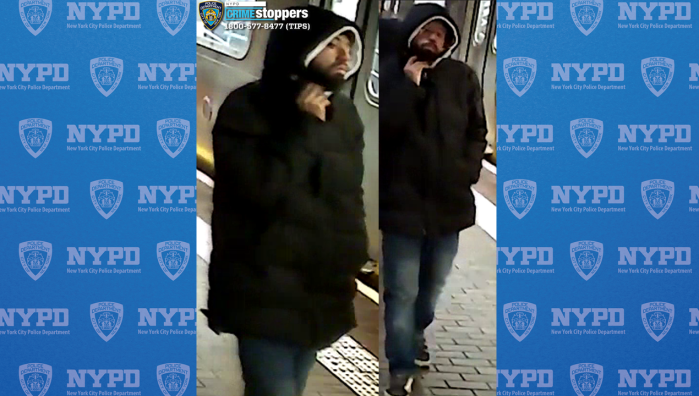Mayor Eric Adams hosted his 41st “Community Conversation” at P.S. 46 in Bayside on Wednesday evening, meeting with residents to discuss a wide range of local and citywide concerns, including housing, education, public safety, mental health, and small property ownership.
The event, held at The Alley Pond School, brought together community members, city agency leaders, and elected officials for a town hall-style discussion. The mayor was joined by multiple deputy mayors and commissioners, including First Deputy Mayor Randy Mastro, NYPD Deputy Commissioner Mark Stewart, and Department of City Planning officials, among others. Community Board 11 Chair Paul DiBenedetto and District Manager Joseph Marziliano were also in attendance.
Mayor Adams opened the event by reflecting on his administration’s accomplishments since taking office in January 2022, citing record job numbers, crime reduction, and major citywide initiatives such as removing illegal guns, increasing broadband access for NYCHA residents, and closing the Roosevelt Hotel migrant shelter.
He emphasized his working-class background and described his administration as the most working-class in city history, highlighting his two decades in the NYPD and his efforts to stabilize the city during and after the pandemic.
Housing and Zoning Concerns Dominate Discussion
A central topic of the evening was housing policy, specifically opposition from some Bayside residents to the citywide zoning initiative known as the City of Yes. Attendees voiced concern over overdevelopment in Northeast Queens, rising costs, and the impact of new housing on single-family neighborhoods.
“You’re trying to quiet our community boards,” one resident said, urging the mayor to reconsider zoning proposals that could allow multi-family units in traditionally low-density neighborhoods. “How much can Northeast Queens take?”
Adams defended his stance, citing a 1.4% citywide vacancy rate and the urgent need to build more housing across all neighborhoods. “Ten of the city’s 59 community boards are building more housing than the other 49 combined,” he noted. “We need more housing in this city.”
“We have to build more housing in the city of New York,” Adams said. “If I don’t build more housing, you’re going to see tents on your block.”
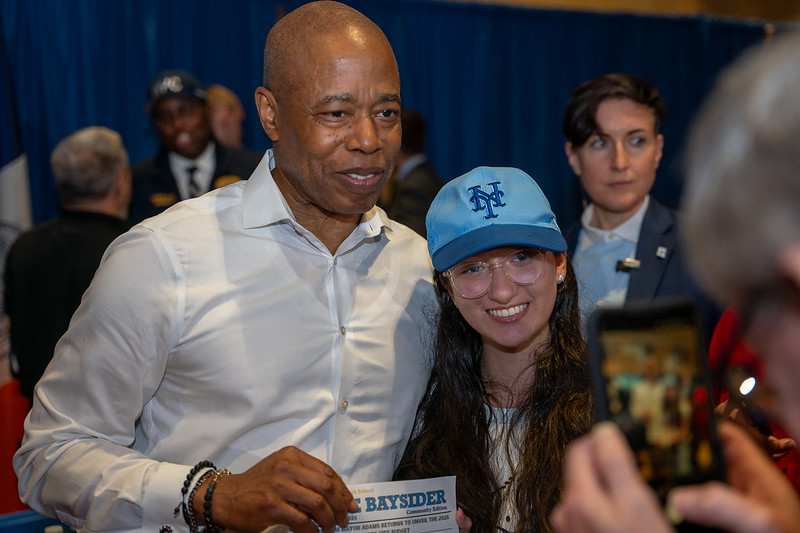
Student Advocates for School Safety and Fair Funding
Dani Queen, a rising senior at Bayside High School and student government president, addressed the mayor about safety concerns and funding inequities for career and technical education (CTE) programs. She presented documentation alleging that Bayside—a 100% state-certified CTE school—was being excluded from portfolio funding despite outperforming other schools with similar programs.
“We’re not asking for anything we’re not entitled to,” Queen said, as she handed the mayor petitions signed by teachers and parents. “Our students deserve this funding. We have the programs, we have the talent, and we’ve done the work.”
Deputy Mayor Tiffany Raspberry responded by citing existing funding increases and pledged to review any inconsistencies. Deputy Chancellor Denika Rux promised to follow up directly with Queen and his school.
Public Safety and E-Bike Enforcement
Multiple residents raised concerns about the proliferation of unregistered e-bikes and scooters, citing safety hazards and lack of regulation. First Deputy Mayor Mastro and NYPD officials explained recent legislation and enforcement efforts, including the seizure of over 100,000 illegal vehicles during Adams’ term.
“Some of these bikes are going 40 to 50 miles per hour through pedestrian areas,” said Deputy Mayor for Public Safety Phil Banks. “We’re working with DOT and the NYPD to crack down.”
The administration also highlighted the formation of a new DOT division to regulate commercial e-bike usage and announced ongoing efforts to build a task force involving the FDNY, Department of Buildings, and Small Business Services to crack down on unauthorized retailers. Commissioner Jessica Tisch said stores selling non-UL-certified lithium batteries could face heavy fines or closure.
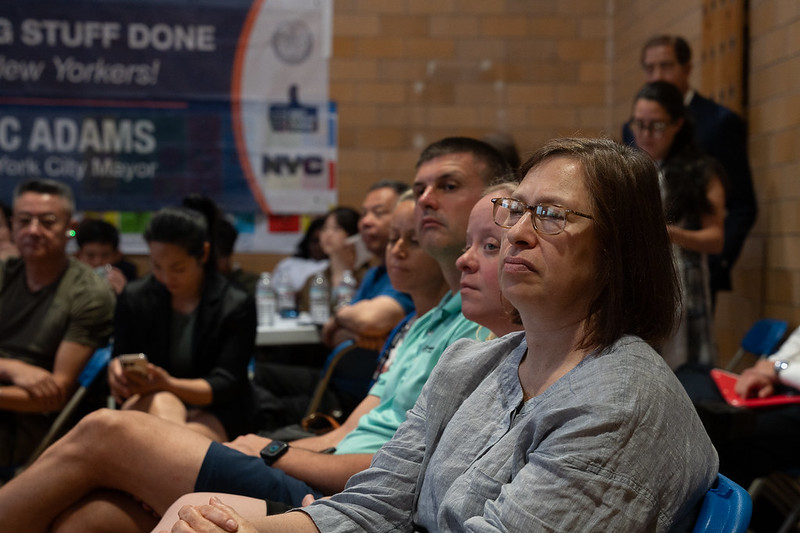
Mental Health and Homelessness
Addressing questions about mental illness and public safety, Adams and health officials described ongoing initiatives to engage unsheltered New Yorkers, including the launch of the PATH program and the expansion of mental health beds at city hospitals.
“We’ve taken over 8,400 people off the streets and subways and into shelters,” said Chief of Department Jeffrey Maddrey. “It’s a team effort between officers, mental health experts, and community outreach workers.”
Dr. Mitchell Katz, CEO of NYC Health + Hospitals, emphasized the need for longer treatment stays and permanent housing solutions for those experiencing severe mental illness. DSS Commissioner Molly Park noted that 97% of New Yorkers experiencing homelessness are currently sheltered, a statistic that outpaces many other major U.S. cities.
Concerns from Small Landlords and Seniors
Local small property owners and senior citizens voiced frustration over unfunded mandates, increasing maintenance costs, and recent legislation limiting their ability to screen tenants. Mayor Adams expressed support for separating regulations for small and large property owners and criticized the City Council for lumping all landlords together.
“What we’re doing to small property landlords in this city is just abusive,” he said. “You have people living in your basement and you can’t even do a background check. That’s not right.”
Department for the Aging Deputy Commissioner Ryan Murray outlined improvements to senior centers and nutrition programs, while NYPD Deputy Commissioner Mark Stewart described new outreach efforts, including senior scam prevention, self-defense classes, and the assignment of older adult liaisons in each precinct.
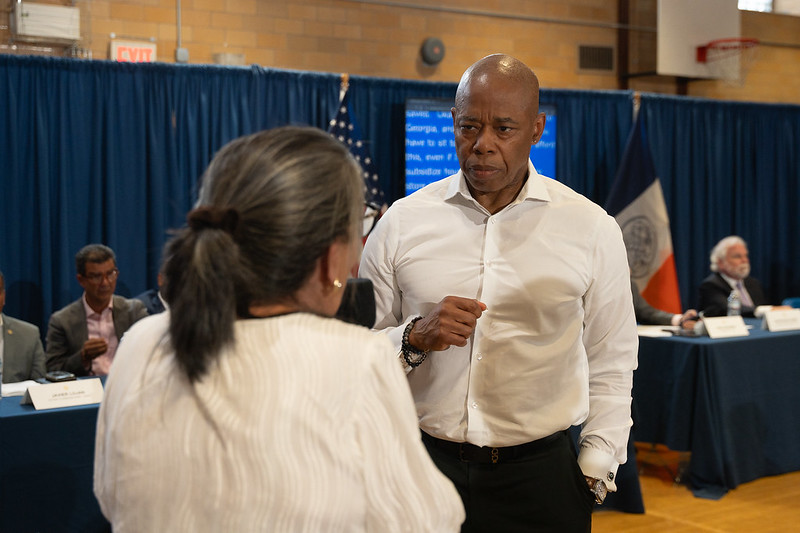
Mayor Adams closed the evening by reaffirming his commitment to direct engagement with New Yorkers.
“I’m beholden to one body of people: the people of New York City,” he said. “I love this city, and I’m going to give this city everything I got until I’m no longer serving.”
The community conversation was part of an ongoing citywide initiative to gather feedback and maintain transparency between City Hall and local neighborhoods.

